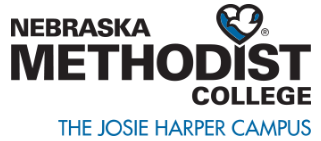10 Best Online Doctor of Health Education Degree Programs

Find your perfect college degree
Students in every Doctor of Health Education graduate program are interested in the creation, implementation, and management of health education programs for diverse cohorts. As current or aspiring health education specialists, students learn effective, efficient, and responsive methods in the identification of health education-related needs among individuals, families, and communities.
Overview
While a bachelor’s degree is often sufficient to enter the field of health promotion or health education, many employers prefer professionals with a doctorate degree in school health education, community health education, or public health education. The doctorate degree is a demonstration of your advanced knowledge and skills, commitment to lifelong education, and exceptional competence.
Quick audio summary:
Methodology
The main goal of Health Education is to improve the targeted beneficiaries’ health and wellness, as well as boost their environmental health. As such, Health Education at the online doctorate level requires extensive community health assessment, too. Students in these graduate programs must also learn communication and collaboration skills to work with other health professionals.
We help you choose the most appropriate online Doctor of Health Education! Each of the programs on our list stands out because it is:
- Offered mostly as a blended program, which requires adult learners to attend both online classes and in-person sessions for clinical courses,
- Features rigorous coursework, emphasizing the educational strategies and research methods, preparing them for research-focused careers in developing, implementing, managing, and promoting programs related to health education,
- Develops a doctoral candidate’s academic soft skills, including in the areas of communication, analysis, research, and problem-solving as part of career preparedness,
- Facilitated through a Learning Management System or platform for online lectures and coursework access,
- Composed of instructors from the Health Education industry, featuring professionals who themselves are terminal degree holders in the field,
- Offers student assistance services in the form of financial aid, career guidance, and networking,
- Properly accredited by institutions and agencies tasked to establish the academic standards for online graduate programs,
Visit our Methodology page and explore the processes we employ to come up with our list.
The Leading Online Doctor of Health Education Degree Programs
Columbia University

Online Doctor of Education in Health Education
Offered at the Teachers College, the online Doctor of Education in Health Education program prepares health educators for advanced professional responsibilities. The extensive program of study ensures that holders of the degree in health education can assume leadership positions in all sectors and implementation of health promotion interventions based on health behavior and other factors.
Core courses are in the areas of:
- Behavioral and Social Science Foundations of Health Education
- Principles of Epidemiology in Health Promotion
- Planning Health Education Programs
- Research Methods in Health and Behavior Studies
- Linear Models and Experimental Design
In a graduate program, students must comply with the requirements related to an independent research project. These include a research seminar, a dissertation seminar, and a dissertation advisement course, all in health education.
Applicants must possess a master’s degree in health education, public health, and other allied professions. Candidates for the doctorate degree must comply with all the graduation requirements, including a dissertation.
George Washington University

Online Doctor of Health Sciences Leadership in Clinical Practice and Education
Students in GWU’s online Doctor of Health Sciences Leadership can choose from two concentrations – clinical practice or educational practice. The program attracts current health educators from diverse backgrounds seeking advanced knowledge and skills suitable for academia and other healthcare environments.
Courses are conducted primarily online as asynchronous, but students must attend two on-campus residences. Assignments have specific deadlines, and students must participate in asynchronous activities like discussion boards. Both concentrations consist of 48 credit hours that can be completed in 2.5 years of full-time studies and satisfactory progress on the dissertation.
The Educational Practice Leadership concentration prepares students for leadership positions in academia. The concentration courses include:
- Teaching Strategies in the Health Professions
- Curriculum Development in the Health Professions
- Assessment in HP Education
- Technology and Education in HP
Graduates demonstrate expert-level competencies in the development and implementation of educational programs, among others.
Admission into the Doctorate of Health Sciences program requires a master’s degree with a 3.0 GPA, minimum, on a 4.0 scale.
A.T. Stills University

Online Doctor of Education in Health Professions
ATSU’s online Doctor of Education in Health Professions program is an excellent training ground for practicing health educators in academic and clinical settings. Students benefit from the practical experience-based approach with real-world applications – and, thus, most students are healthcare educators, clinicians, and healthcare directors.
This is a 55-credit hour program with a 100% online curriculum. Students don’t have to comply with residency requirements, meaning more time to focus on their coursework. The program even allows students to enroll in just one course every term!
The core courses include:
- Cultural Competence and Multicultural Education
- Educational Program Evaluation
- Finance and Budgeting
- Innovative Teaching Strategies in the Health Professions
- Instructional Design and Program Planning
Students must also meet the requirements for the Doctoral Research Project, a series of five courses that cover the dissertation stages (e.g., from proposal preparation to publication). Courses in quantitative and qualitative research are also included in the comprehensive Doctoral Research Project phase.
Applicants are evaluated based on academic records, application content, and personal motivation.
Walden University

Online Doctor of Philosophy in Health Education and Promotion
Walden University’s online Ph.D. in Health Education and Promotion program is intended for current health educators who want to pursue research in public health and other allied areas. Students are encouraged to become catalysts for social justice and community health through an intensive curriculum.
The health education doctoral degree program is recognized for its emphasis on leadership traits, particularly for researchers, professors, and educators. Students in the Ph.D. programs choose from three paths depending on their academic credentials:
- Track 1 is for students with a master’s degree in health education and promotion
- Track 2 is for students with a master’s degree in public health
- Track 3 is for students with a master’s degree in fields other than health education and promotion or public health
Students also choose from several specializations, including Behavioral Health, Global Health, Management and Leadership, and Online Teaching in Higher Education. Other specializations are in Population Health and Research.
The Ph.D. program accepts transfer credits of up to 40 credits from a master’s or a doctoral degree. Students take courses like:
- Assessing Community Needs for Health Education
- Building a Multidisciplinary Approach to Health
- Research Theory, Design, and Methods
The culminating requirement is a research project.
American College of Education

Online Doctor of Education in Public Health Education
The online Doctor of Education in Public Health Education program at ACE can be completed in 36 months, which is among the shortest time-to-completion. Students who have achieved ABD status or possess an Education Specialist (EdS) degree can earn a doctorate degree in 37 credit hours.
Healthcare professionals interested in the use of evidence-based research in health promotion and disease prevention interventions are welcome to apply. Students develop expert competencies vital to addressing public health issues and promoting public health education. The coursework emphasizes research and culminates in a dissertation, thus enabling current health educators with public health practice to address their areas of interest.
The 64-credit hour program includes courses in:
- Scholarly Writing and Research Strategies
- Introduction to Advanced Studies
- Fundamentals in Health Education
- Standards-Driven Learning
Applicants must possess either a master’s degree or a doctorate degree. Candidates for the doctorate degree must maintain at least a 3.0 GPA.
Logan University

Online Doctor of Health Professions Education
Most of the students in Logan’s Doctor of Health Professions Education online degree program are practicing health educators and professionals. The 100% online classes and choice between full-time and part-time course load make it convenient for them to pursue the degree while meeting other obligations.
Students can also complete their applied research projects and internships at their chosen local organization or online. There are three trimesters every year, with each trimester lasting for 15 weeks. Course titles include:
- Issues in Health Professions Education
- Learning Principles 3 credit hours
- Behavioral Theories in Education
- Cognitive Psychology and Instruction
- Principles of Classroom Assessment & Evaluation for Health Professionals
Applicants must have a master’s degree and relevant work experience in health education or other allied fields.
Nebraska Methodist College of Nursing & Allied Health

Doctor of Education in Education & Leadership in Healthcare
The Doctor of Education in Education and Leadership in Healthcare degree program at Nebraska Methodist encourages health educators and healthcare professionals to become agents of change. The online program can be completed in 36 months of part-time study or 24 months of full-time matriculation.
Students tackle interdisciplinary coursework under the guidance of experienced faculty members with expansive teaching and clinical experiences. Graduates become effective leaders in academia and healthcare organizations.
Courses cover topics like:
- Leadership in Organizations
- Teaching, Learning, and Instructional Methods
- Healthcare Finance
- Healthcare Policy
- Research
The 24-month time-to-completion is possible since there’s no dissertation requirement. Students engage in translational research instead.
Applicants must have a master’s degree in a relevant field with a 3.0 GPA at least. Essays and interviews are also part of the admission requirements.
Clarkson College

Online Doctor of Education in Healthcare Education & Leadership
The Doctor of Education in Healthcare Education and Leadership degree program prepares experienced health educators and healthcare professionals for leadership positions in higher education and healthcare settings. Students benefit from the interdisciplinary curriculum that emphasizes applied research in finding innovative solutions.
The online program has a 51-credit curriculum that can be completed in 14 semesters (part-time) or eight semesters (full-time). The featured courses include:
- Organizational Systems and Behavior
- Healthcare and Education Policy and Law
- Learning Theories and Adult Education Methods
- Healthcare Economics and Financial Management
- Trends and Issues in Healthcare Education
Students complete a dissertation to earn a doctorate degree. Applicants must have a master’s degree or higher, a scholarly paper, and at least a year of relevant work experience.
Allen College

Online Doctor of Education – Health Professions Education
The online Doctor of Education – Health Professions Education degree program at Allen College prepares students for the challenges of leadership positions in academia and the health sciences industry. Students learn to become better health educators in diverse settings, from K1-12 and higher education to corporate and community settings.
The 60-credit hour program features courses in:
- Organizational Development and Change in Education
- Finance and Fiscal Management
- Curriculum Theory and Design
- Integrating Evolving Technology in Health Professions Education
- Educational Research
The capstone project in the online program is an original independent research project. Students can choose their area of interest and suggest possible solutions.
Applicants must have a master’s degree or higher with at least a 3.0 GPA and completion of a statistics course to be considered for acceptance.
Loma Linda University

Online Doctor of Public Health in Health Education
Health educators and professionals comprise the majority of students in Loma Linda’s Doctor of Public Health in Health Education online program. Students develop their advanced skill sets in research, management, and health education, as well as their ability to plan health behavior-centric plans using their critical analysis skills.
The online program emphasizes effective, efficient, and responsive public health practice,, including public health education and health literacy. Students gain a deeper appreciation for the importance and strategies of community health education.
The program features online courses with an emphasis on the research process. Students may take on-campus courses during the summer terms, too.
Students complete 62-65 credit hours and can complete the program in three years. Courses include:
- Building Healthy Individuals and Communities
- Doctoral Seminar for Public Health
- Health Education Evaluation and Measurement
- Health Behavior Theory and Research
- Advanced Seminar in Health Education
Graduates become proficient in the creation, implementation, and evaluation of health education programs.
Applicants must have a master’s degree in health education, public health, health promotion, or health behavior to be considered for admission. Post-master’s work experience will be considered.
Exploring Doctor of Health Education Online Programs
Doctoral programs in health education or health promotion offer one of two types of Doctor of Health Education degrees. First, the Doctor of Education (EdD) degree is a professional degree suitable for current health educators in mid-level to senior-level positions.
These practicing professionals are typically employed in K-12 and higher education organizations, nonprofit organizations, government agencies, and healthcare organizations. Among their main goals for earning a doctorate degree in health education is to lead the change process in their organizations and/or communities. This is a practice-based degree, meaning research projects are focused on finding solutions to current and emerging issues in health education.
Second, the Doctor of Philosophy (Ph.D.) in Health Education is for health educators who want to pursue research and professorial jobs at the college and university level. This is a research degree with a more theoretical approach to research, particularly in adding to the existing body of knowledge.
Both, however, have crossover potential, meaning an EdD degree can be used for theoretical research while a Ph.D. degree can be useful in applied research jobs.
Admission Requirements
The best online Doctor of Health Education programs have selective admission criteria that include:
- Either a bachelor’s degree or master’s degree in health education, public health, and other related disciplines
- Minimum cumulative GPA on the most recent degree earned, usually a 3.0 on a 4.0 scale
- Satisfactory GRE/GMAT scores (Some programs waive the requirement)
- Letters of recommendation
- Personal statements
- Current résumé
Check if the health education program you’re interested in has an interview component, too. Many programs require a published master’s degree thesis as proof of readiness for a doctoral dissertation.
Time-to-Completion
Depending on the Doctor of Health Education graduate program, the time to completion for full-time studies can range between three and five years. However, the average time-to-completion is a goal, not a reality, since the dissertation phase can be extremely challenging and, thus, increase the chances for an ABD (All But the Dissertation) status. The realistic time-to-completion is 5-7 years.
Format, Curriculum, and Courses
Graduate students in Doctor of Health Education programs tackle rigorous coursework that includes core and research courses, as well as dissertation courses. Students learn advanced skills in evidence-based research that address a wide range of public health or community health issues. Public health issues demand an interdisciplinary approach, as well as leadership skills, professional ethics, and commitment to social justice.
Online education has a different format from on-campus education, too, mainly in the use of digital technologies, including a learning management system. However, the standards for academic excellence are the same for both online and on-campus graduate students.
Major Examinations
Doctoral students aren’t subjected to the usual barrage of exams in undergraduate programs. Instead, the focus is on knowledge and skills development for the successful completion of three major exams:
- The qualifying exam that signifies formal admission
- The preliminary exam for dissertation readiness
- The final exam for dissertation presentation and defense
Every exam has its timeline, too. Graduate students must work with their respective academic advisors to hit the academic milestones as planned.
Doctoral Dissertation
Most of the best online Doctor of Health Education programs have an independent research component with the dissertation as the capstone project. For this purpose, every student is usually assigned a faculty member as an academic advisor.
Core Courses
Every Doctor of Health Education program has its own courses and their prerequisites, learning outcomes, and sequence. Check out the curriculum first to determine if you have master’s degree courses that can be credited toward the doctorate degree.
- Theories and Principles of Behavior Change. Health educators use research methods, including surveys, to determine the factors behind health-related behaviors among individuals and communities. This course establishes the advanced foundation for the specific technical skills necessary.
- Systems, Policy, and Leadership in Health Informatics. Students explore the digital technologies used in public health care systems, including bioinformatics, statistics, and clinical research.
- Research Methods. Learners acquire advanced skill sets in conducting evidence-based research projects.
- Instructional Strategies for the Adult Learner. Health educators also tackle issues related to adult education, and thus, the course allows them to develop strategies for the enhancement of adult learning, including their critical thinking ability.
- Communications and Advocacy for Leaders. Students explore the wide range of issues that make their jobs as health educators challenging, such as health literacy.
Residency Requirements
Nearly every online Doctor of Health Education has an on-campus residency requirement, usually for the orientation and dissertation phases. We suggest looking for a health education program with a residency component since it’s an opportunity for personal interactions and professional networking. The on-campus visits are also opportunities to take advantage of on-campus student support services.
Skills and Competencies Gained
Health educators and specialists must possess a wide range of technical and transferable skills, including:
- Research skills, including data analysis and interpretation
- Analytical skills
- Communication and collaboration skills
- Instructional skills
- Problem-solving skills
Learning Objectives
The best online doctoral programs in health education enable students to:
- Evaluate health factors that influence individual and community health
- Use individual and community health assessment tools in the identification and prioritization of health problems and health interventions.
- Formulate, implement, and evaluate health promotion and disease prevention programs
- Promote individual and community health using their research skills and through evidence-based research
Tuition and Financial Aid
The average cost of a Doctor of Health Education degree ranges between $98,800 and $111,900, with the average cost for a doctorate degree being $114,300. The good news is that doctoral students usually have more financial aid options than their counterparts in master’s degree programs.
Check out federal financial aid (FAFSA), state aid, organization grants, institutional scholarships and assistantships, and fellowships. Ask your employer about military discounts or employer tuition assistance, too.
Professional Certifications and Licenses
The Doctor of Health Education credential is highly valued by the healthcare industry and its allied industries. However, employers may prefer, even require, health education specialists to obtain professional certification.
The most recognized is the Certified Health Education Specialist certification, a professional credential administered by the National Commission for Health Education Credentialing, Inc. The Certified Health Education Specialist credential is valued for both its career advancement and change influencer potential.
Health educators and certified health education specialists can also become members of professional organizations dedicated to the professional development of their members and profession. The American Academy of Health Behavior, the American Association for Health Education, and the Society for Public Health Education are notable examples.

Overview of Holders Doctorate of Health Education Prospects: Duties, Pay, and Occupations
Professionals with a Doctor of Health Education degree are more competitive in the job market as health educators and health education specialists, among other job titles. While the specific roles and responsibilities vary depending on the type of employment, industry, and position, these health education professionals have general duties.
General Roles and Responsibilities
Health education specialists perform these general roles and responsibilities.
- Make individual and community health assessments, including the identification of health disparities
- Develop, implement and evaluate the effectiveness of health education programs, events, and materials
- Assist individuals, groups, and communities in accessing health services and resources
- Train community health workers and other healthcare professionals
Health education specialists work in a wide variety of settings, including:
- Health organizations and facilities like hospitals, clinics, and community health facilities
- Nonprofits engaged in public health programs
- Government agencies, particularly those with public health concerns or departments
- Corporations and companies with health and wellness programs for their employees
Average Salary, Job Outlook, and Potential for Career Advancement
According to federal data, health education specialists earned a median annual wage of $59,990 (May 2022). However, annual wages for health education specialists vary widely depending on the type of industry, among other factors.
The projected growth of overall employment for health education specialists is 7% (2022-2032). This translates to approximately 16,000 job openings over the decade.
Specific Occupations for Health Education Specialists
Keep in mind, however, that it isn’t just top-level health education specialist jobs that a Doctor of Health Education degree will open up! There are plenty of other equally challenging yet rewarding careers for health education professionals.
- Education Program Managers. These professionals oversee the formulation and implementation of educational programs like summer camps, after-school programs, and extracurricular programs. Many even develop curricula for K-12 and higher education institutions.
- Head Start Health Specialists. By ensuring that every child receives proper and prompt preventive healthcare services, Head Start health specialists contribute to nation-building. Their duties include monitoring the effectiveness of federal and state health education and nutrition programs based on the Head Start Program Performance Standards.
- Clinical Research Specialists/Coordinators. These professionals pursue research projects, specifically clinical studies and trials for new drugs and biotechnology. Their research skills are instrumental in the development of new healthcare-related products and services.
- Health Programs Management Directors. With preventive medicine foremost on their minds, health program management directors prioritize health problems and their solutions.

Frequently Asked Questions
How can you choose the best Doctor of Health Education and Promotion program?
The best graduate degree programs have higher education accreditation from the six regional accreditation agencies as well as programmatic accreditation. These programs should also be excellent training grounds for passing the Certified Health Education Specialist exam, and others like it.
Is a Doctor of Health Education a real doctor?
Yes, but it isn’t the same as a medical doctor. You can use the “Dr.” prefix in your name for professional correspondence and communication.
How does enrolling in an online Doctor of Health Education program benefit students?
Recognition for academic excellence, accessibility and affordability, and flexible schedules are among the reasons for the continued popularity of online programs.
Key Takeaways
- The Doctor of Health Education degree is an advanced academic credential that opens doors of opportunities in academia, healthcare organizations, and government agencies.
- Cost can be a stumbling block in earning a doctorate degree, but it can be overcome with financial aid options.
Additional Resources:




